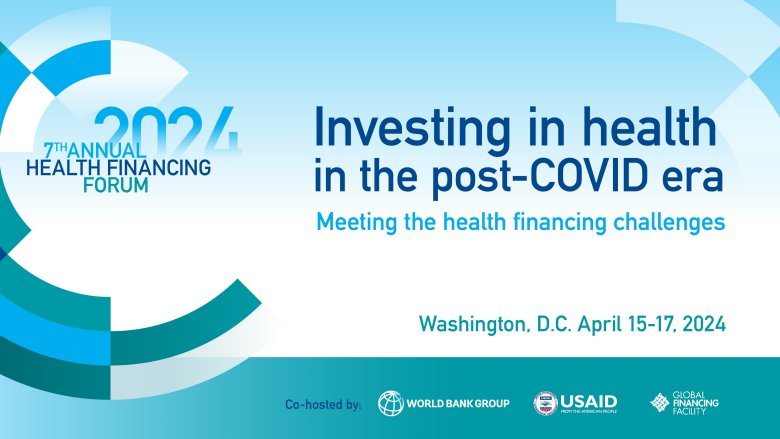The World Bank, USAID and the Global Financing Facility (GFF), will host the 7th Annual Health Financing Forum (AHFF7) on April 15 to 17, 2024, on the sidelines of the 2024 World Bank/IMF spring meetings. This year's AHFF will explore new pathways to prioritize health in government spending, channel increased government funding into vital health programs, and boost the impact of Development Assistance on government investments in health.

In the post COVID era, low- and middle-income countries face vexing challenges in financing the investments necessary to restart progress toward UHC and strengthen health security. For many, the macro-fiscal outlook is bleak and government spending will remain constrained for years to come. Simultaneously, the priority given to health in government spending has dropped to pre-COVID-19 levels, while the funding needs for other development challenges, in particular climate change, continue to grow rapidly.
AHFF7 will consist of six plenary sessions, including an introductory session to set the stage, side events, and the Adam Wagstaff Memorial Lecture. AHFF7 will take place via a hybrid format; the Forum’s plenary sessions will be held in Washington, DC, at the Mayflower Hotel, and will be livestreamed through the AHFF online platform. In-person attendance is capped at 150 participants, prioritizing the participation of policymakers and health financing experts from low- and middle-income countries.
Since 2016, the Annual Health Financing Forum (AHFF) has been one of the few global spaces to convene key actors from the health and financing sectors to discuss pressing health financing concerns.
This year, we are also celebrating the 30th anniversary of the World Development Report 1993, Investing in Health, which transformed the global health landscape. This is an important occasion to revitalize the debate for investing in health.
Again, this year, the Forum will host the Adam Wagstaff Memorial Lecture. The talks spotlight the latest research on healthcare financing and the annual recipient of the Adam Wagstaff Award for Outstanding Research on the Economics of Healthcare Financing and Delivery in Low- and Middle-Income Countries, hosted by IHEA. This award reflects Adam’s lifelong commitment to improving healthcare financing and delivery and promoting equity in low- and middle-income countries.